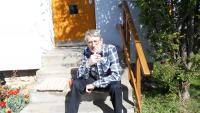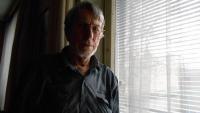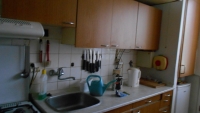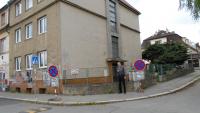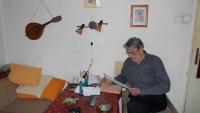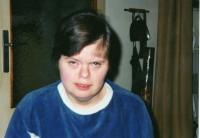I heard terrible roar from the kitchen. They were welcoming dad who came back from Terezín

Download image
Petr Pilný was born on 17 February 1939 in Prague in a mixed family. His father Adolf Pick, a bank official, came from a Jewish family and his mother Marie (née Kocmanová) was a Christian. During the war his father worked at the Jewish community’s cabinetmaking shop. The Jewish members of the family had to leave for Terezín in 1942 and most of them later perished in extermination camps. The Christian wife protected the father for almost the entire war; he was deported to Terezín on 11 February 1945. His six year-old son Petr was supposed to leave with him but the parents divorced formally and the mother hid Petr under a false name in their friends’ house in Malešov near Kutná Hora where they went on to hide until the end of the war. The father came back from Terezín and became the guardian of his nephew Ota, one of the few relatives who survived concentration camps. The family changed their name from Pick to Pilný in 1946. Petr Pilný graduated from a secondary school and worked as a process specialist. He later graduated from the Faculty of Education and became a teacher. He got married in 1960 and he and wife Jiřina brought up their daughter afflicted by Down syndrome. In the 1970 he was a member of the Local National Committee (local government) in Slivenec without being a member of a political party. Petr Pilný became a widower in 2001 and his only daughter died a year later. Petr Pilný died on 17 March 2024.
